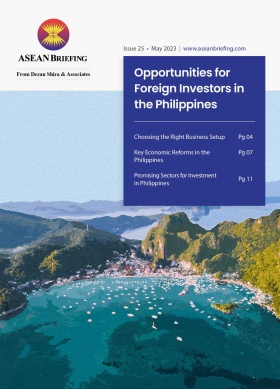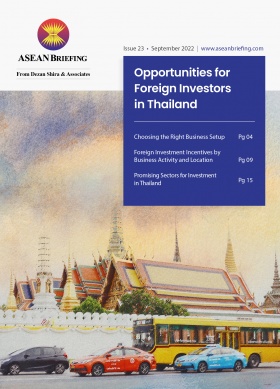Audit and Compliance in Cambodia: A Guide for Foreign Investors
Resident taxpayers are subject to tax on their worldwide income while non-resident taxpayers are taxed on their Cambodia-sourced income only.
Resident taxpayers will have their principal place of business in Cambodia whereas a non-Cambodian national will be considered a resident taxpayer if they are in Cambodia for more than 183 days or have their principal place of abode in the country.
All business entities, that meet the criteria set out in Prakas 643 of the Ministry of Economy and Finance must submit their financial statements to be audited by an independent auditor.
The business must fulfill at least two of the three following criteria:
- Businesses that have an annual turnover of 4 billion riel (US$969,200);
- Businesses that have total assets of over 3 billion riel (US$726,673); and
- Have more than 100 employees.
Appointing auditors
On July 10, 2020, Cambodia’s Ministry of Finance and Economy issued Ministerial Order 563 (MO 563), which sets out the requirements for the types of business entities that must be independently audited.
Under MO 563, public companies, companies with public accountabilities (businesses that have debt instruments), and ‘investment projects’, are obligated to be independently audited for each financial period. The regulation also states that other business entities that achieve a certain annual turnover or have assets of a certain value will also need to be independently audited.Businesses that are obligated to be audited are required to do so for a minimum of three consecutive years, and the issuance of the audit report shall be completed no later than six months from the closing date of the accounting period.
How are these entities defined?
Companies with public accountabilities are those that have debt instruments traded in the domestic or international stock market.
These also include enterprises that hold assets in a fiduciary capacity (holding or managing assets on behalf of persons that are unrelated to the company. These are banks, insurance companies, credit unions, and mutual funds, among others.
Public companies are those that are effective under the Law on the General Status of Public Enterprise.
Non-profit organizations will also need to be audited if they meet the following criteria:
- Have annual expenses of more than 2 billion riel (US$484,449); and
- Have more than 20 employees.
Certificate of compliance
Enterprises that are classified as Qualified Investment Projects (QIPs) must submit a certificate of compliance (CoC) by March 31 of each year in which they were given a Final Registration Certificate by the Council for the Development of Cambodia (CDC). Without a CoC, the entity could lose its investment incentives.
The following documents need to be submitted to obtain the CoC:
- Articles of incorporation;
- Articles of incorporation issued by the MoC;
- Latest audited financial statements;
- Latest patent tax certificate;
- Certificate pertaining to tax obligations from the Tax Department;
- The latest information regarding the import of materials or equipment by the QIP;
- The CoC from previous years (if applicable); and
- Latest company information extracted from the MoC website (business extract).
Fiscal periods
The tax and accounting year in Cambodia do not need to coincide with the calendar year. If a company is established during the financial year, then the first period of accounts will run from the date of incorporation to December 31.
Accounting standards
The National Accounting Council of Cambodia has adopted the same standards as the IFRS for SMEs. The standards are referred to as the Cambodian International Financial Reporting Standards (CIFRS for SMEs) and the Cambodia International Financial Reporting Standards (CIFRS).
Businesses registered as QIPs must have their financial statements audited by an external independent auditor registered with the Kampuchea Institute of Certified Public Accountants and Auditors.
Investment projects are defined as QIPs. QIPs are projects that are eligible to receive fiscal and non-fiscal incentives from the Cambodian Investment Board. They are divided into three types – domestic QIPS, export QIPs, and supporting industry QIPs.
Annual reports
All companies regardless are required to prepare their documents in the Khmer language and must use the Khmer Riel on all accounting records. However, financial statements can also be prepared in English and other foreign currencies if the business activities are with foreign entities.
Businesses should provide the following:
- Financial statements;
- Statement by directors on the financial statements;
- A statutory declaration by the director or officer primarily responsible for financial management; and
- Auditor’s report.
All business entities registered with the Ministry of Commerce (MoC) are required to file an Annual Declaration of Commercial Enterprises (ADCEs) on the MoC’s online system within three months of re-registration with the MoC. Failure to do so could result in a 2,000,000 riel (US$484) fine.
Tax returns for monthly taxes, such as withholding tax and corporate income tax, must be filed monthly, and within 20 days of the following month. This will be extended if the 20th day falls on a public holiday or non-working day.
Penalties for non-compliance
Penalties for non-compliance apply to failure to file, late filing, or filing fraudulent returns. The resultant penalties range from 10 to 25, to 40 percent, and interest of 1.5 percent for late or unpaid taxes.
About Us
ASEAN Briefing is produced by Dezan Shira & Associates. The firm assists foreign investors throughout Asia and maintains offices throughout ASEAN, including in Singapore, Hanoi, Ho Chi Minh City, and Da Nang in Vietnam, in addition to Jakarta, in Indonesia. We also have partner firms in Malaysia, the Philippines, and Thailand as well as our practices in China and India. Please contact us at asean@dezshira.com or visit our website at www.dezshira.com.
- Previous Article Singapore-UK Bilateral Investment Treaty: Status of Negotiations
- Next Article An Overview of US Trade and Investment in ASEAN







